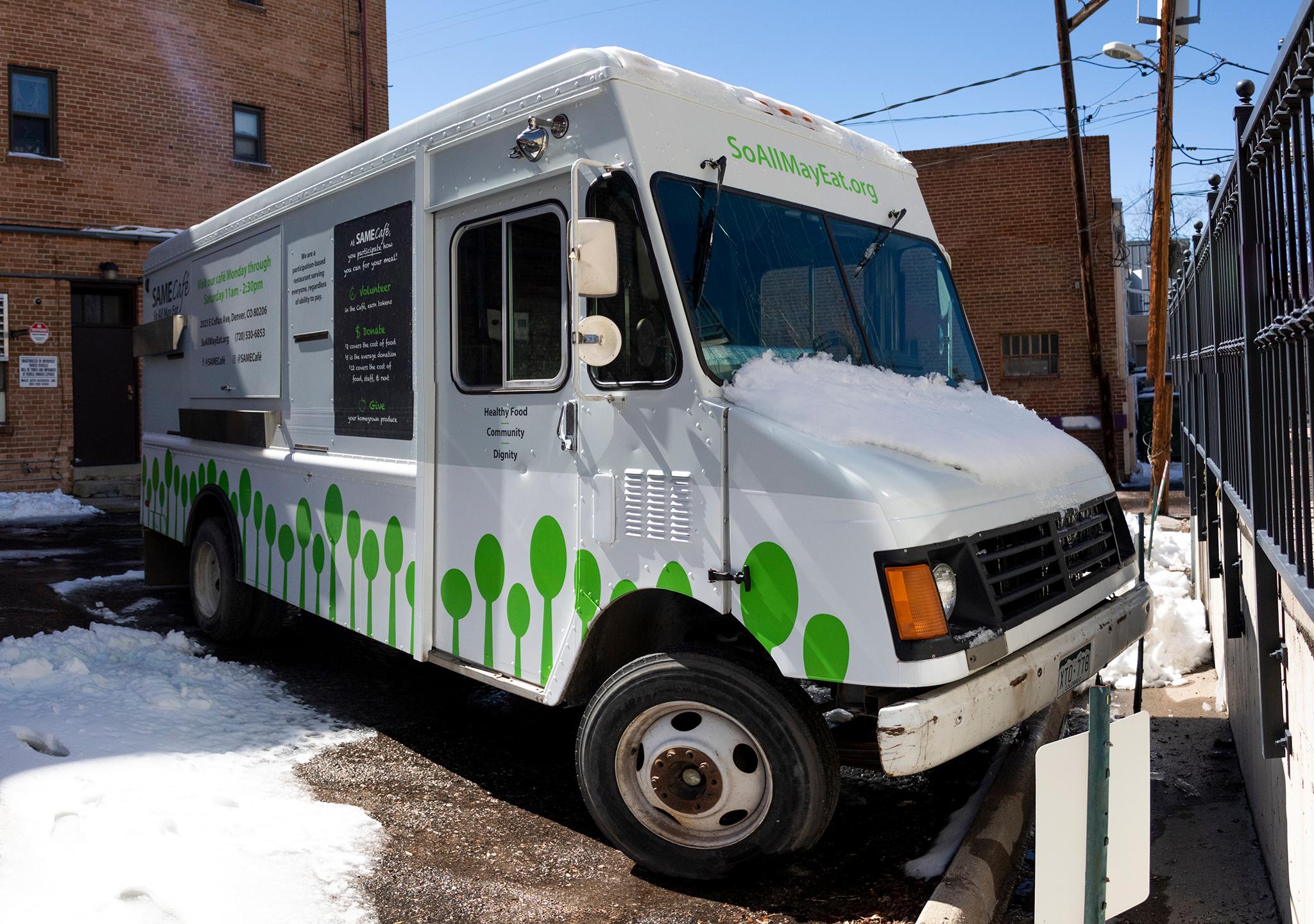The rush was finally slowing at SAME Café, an East Colfax lunch spot that does good by cooking good. Chef Letisha Steele settled at a table with one of the salads of the day and took a bite of chopped strawberries, pear, red onion and walnuts piled on velvety greens.
"Oh," she said, her exclamation equal parts admiration and satisfaction. "This is the lettuce from GrowHaus."
At SAME -- So All May Eat -- you pay what you can, and get the best. That mission is about to go mobile, said Brad Reubendale, SAME's executive director.
The nonprofit has bought and refurbished a used food truck that this spring will start serving the meals Steele creates out of fresh ingredients from local places like Ekar Farms, Denver Botanic Gardens and Elyria-Swansea's GrowHaus, a nonprofit indoor farm where the passion for getting healthy food to people in need resonates at SAME.
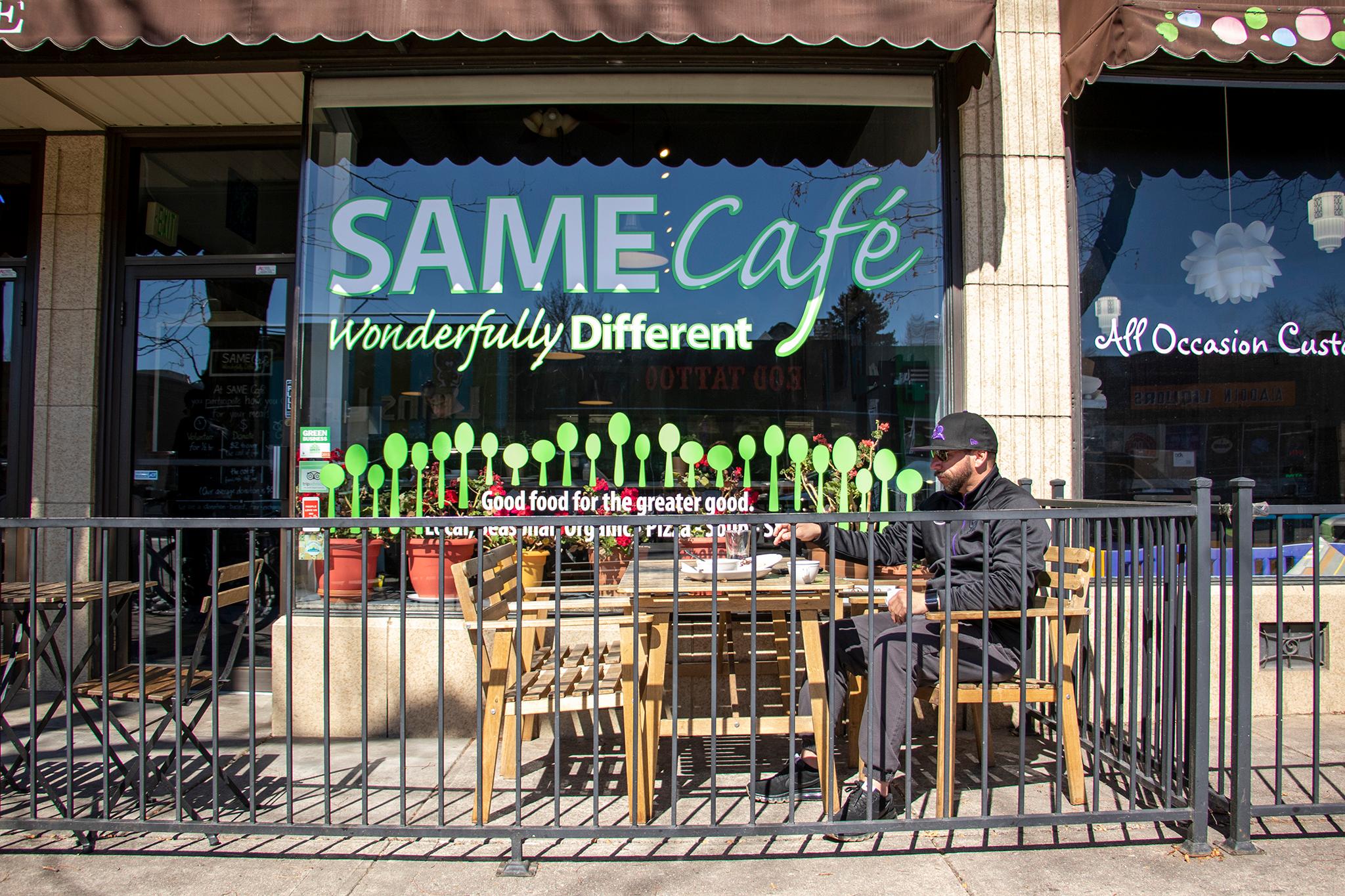
Reubendale said the crowds at the East Colfax site tucked between a hair salon and a bakery have made clear the 13-year-old enterprise needed to expand. But it could cost as much as $500,000 to open a new brick-and-mortar restaurant. He budgeted $120,000 for buying and outfitting the food truck and staffing and supplying it for a year, during which he can scout locations, refine planning and rally support for a second restaurant site.
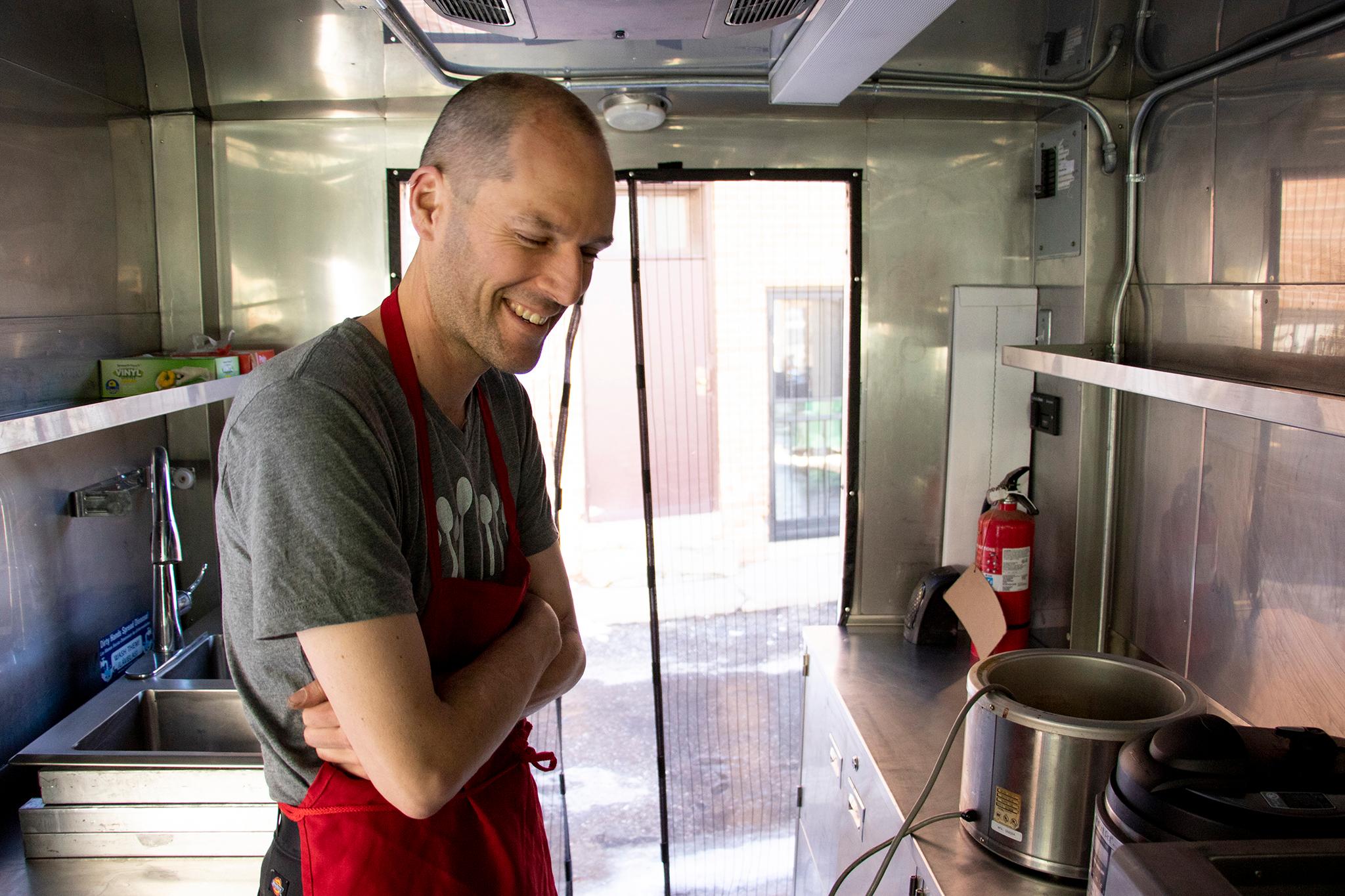
Reubendal and Steele plan to send their truck, painted a crisp white and green, to Denver's food deserts starting in Globeville and Elyria-Swansea, as well as its food festivals. Reubendale envisions taking part in Civic Center EATS, which brings food trucks to Civic Center Park in the summer and fall. It would be a chance to feed people experiencing homelessness who often congregate at the park, and to tell the SAME story and serve its food to office workers who might decide to offer financial support.
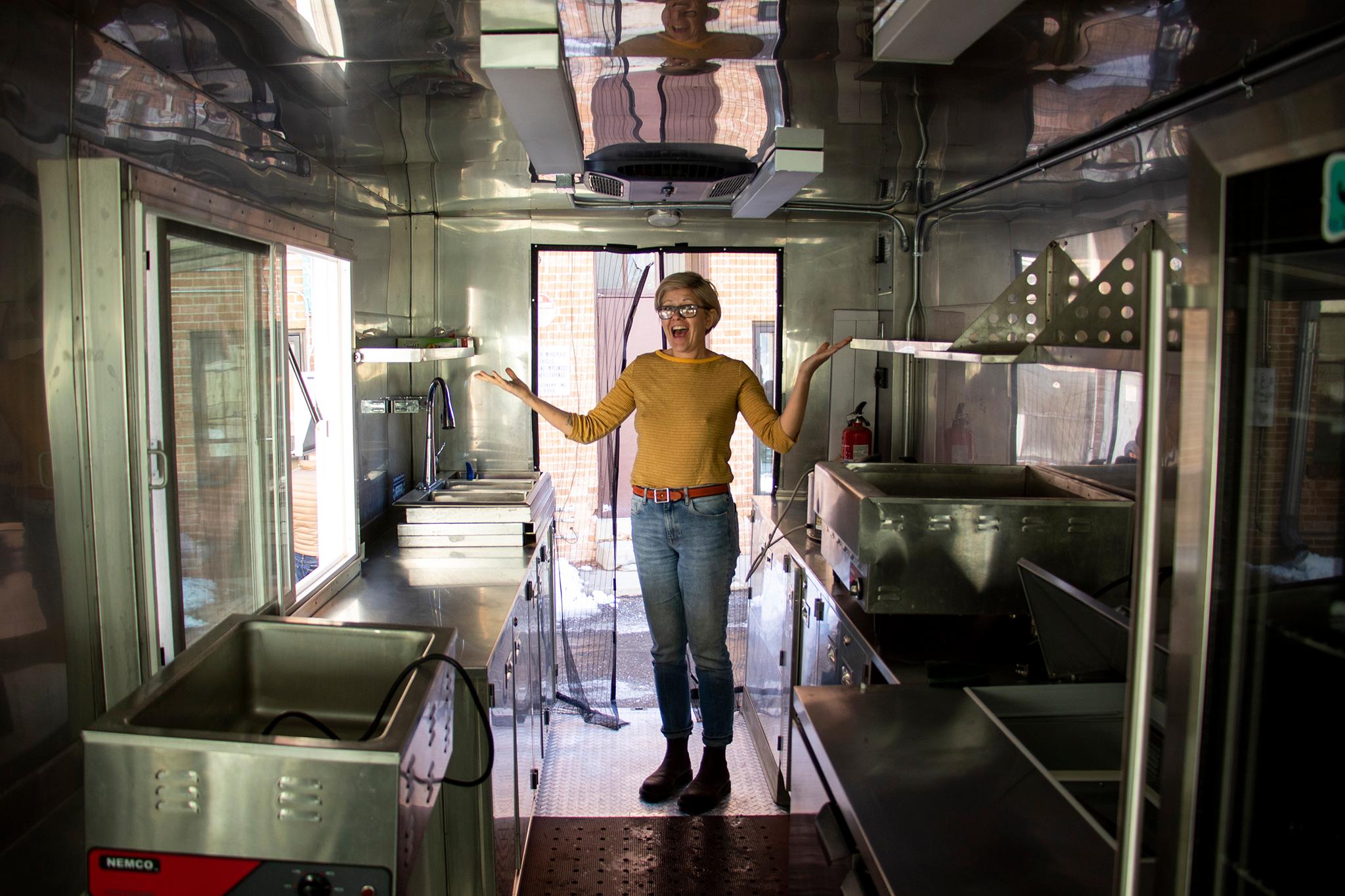
Everyone will be welcome at the food truck, as they are at the restaurant. SAME relies on donations to ensure that anyone can have a meal. Those unable to pay anything can volunteer 30 minutes helping out in the restaurant. On Colfax, those wondering what to pay can check a blackboard at the end of the order counter that notes an average donation is $5 and lists the $2 cost of the food in a typical meal and the $12 an order runs when what it takes to operate a restaurant is factored in. Donations can be discretely slipped into a metal box, or customers can use a DIY credit card reader.
Reubendale first raised the idea of a food truck with potential donors last summer. He credits longtime supporters Gary and Kathryn Dudley with getting things started with a matching grant of $10,000. Other funds came from the Buck Family and Colorado Health foundations and the now defunct CoBiz Cares Foundation.
"We're not viewing it as a business," Reubendale said. "We're a nonprofit. We're here to serve people, first and foremost."
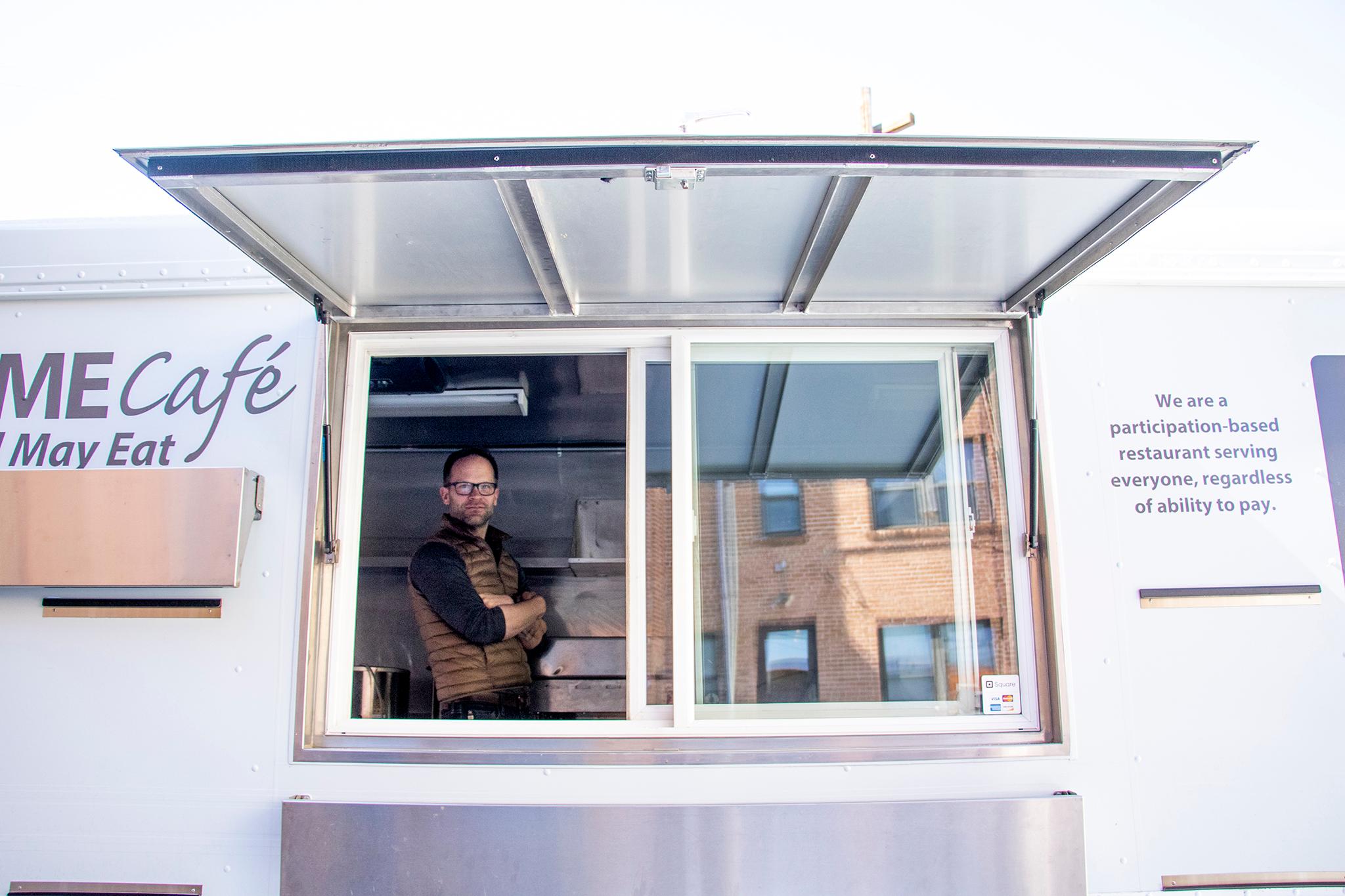
They serve an average of 55 people a day. Reubendale estimates 60 to 80 percent of the meals that come out of SAME's open-to-customer-eyes kitchen are served to people in need. Some have allergies or dietary restrictions that a shelter kitchen might not be able to accommodate. At SAME, they can count on gluten-free and vegan options.
"We hear from a lot of guests that this is the only place they can eat," Reubendale said.
Steele said: "We're nourishing people. It's what gives them the vitality and energy to go out into the world."
People experiencing homelessness can also get food preparation training in the kitchen alongside Steele, who has worked in restaurants for 30 years.
Her truck menu will revolve around bowls of grains -- millet, sorghum, brown rice. Toppings with a choice of proteins will include curries.
"The vegetables will be whatever's in season," Steele said. "If it's asparagus, zucchini season, we'll be loading up the bowls with those."
Steele will also try out a new use for some of the fresh herbs she gets: infusing simple syrups to make soda.
"If you've ever had a sage-basil soda, it's delicious," said Reubendal, who may be Steele's biggest fan.
Items from SAME's truck menu could end up being offered to diners at the Colfax café, which has featured salads, soups and gluten-free pizzas. Everything is made from scratch at the Colfax kitchen, which will supply the food truck as it has the restaurant.
In 2006 Brad and Libby Birky brought the nonprofit restaurant idea to Denver, tweaking a model they had learned about in Utah. The couple had cooked meals at the Catholic Worker house, a shelter alternative in Five Points, and wanted to expand what they had learned there about how food and community can be nourishing. Reubendale, who has a background in nonprofits and had eaten at the cafe at a time when he was jobless and homeless, took over as executive director in 2017.
"I have a very personal connection to the mission," he said.

